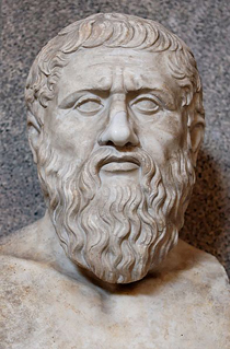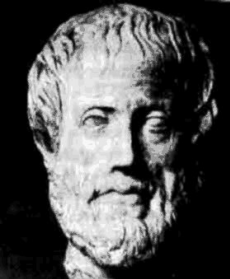
Studying Philosophy is not like studying science. In Biology, Chemistry and Physics, there are set rules, each new discovery made allowing recognition of a previously unknown law of nature. In Philosophy, when a new theory or logical argument is thought of, within a hundred years or so, another famous name of the Philosophy world will write a paper on why the predecessor was so very wrong. Because of this, many famous philosophers offer contradictions to one another - one of the most interesting ones being Aristotle and Plato’s disagreement regarding the human soul. Whilst both Ancient Greeks did believe that the soul was real, their views on its nature and purpose can be described colloquially as ‘chalk and cheese.’ Yet, both are considered some of the most significant thinkers in the Philosophy world - so, for the heavyweight title of most accurate Philosopher - here is Aristotle Vs. Plato, arguing for the nature of the human soul.
As Plato was actively, for want of a better word, Philosophising years before Aristotle, he can throw the first metaphorical punch. Born in 428 BCE and dying in 328 BCE, Plato held dualist views. Essentially, this is the belief that the body and soul are two separate entities (dua=two). As they were two things, rather than one, Plato argued that therefore, the body could be separated from the soul, and not only that, but as the soul was immortal, it could carry on existence after death, travelling to the ‘world of the forms’. In Plato’s mind, our world was only a poor imitation of the ‘true’ world our souls reach after our death -, as our souls are immortal and eternal, they also existed there before our birth. But as souls are, in his words ‘captive’ in bodies, there is tension within us. This is between the three parts of the soul; reason, desire, and emotion. Although, it seems that despite the soul and body being two different things means they can be separated, a tripartite soul cannot be split into three parts. At least, according to Plato. Anyway, as our reason is constantly trying to command emotion and desire, an imbalance in the soul (i.e. a soul where reason is not in charge) causes strong internal conflict. So, Plato concludes, our souls are different from our bodies, they exist before and after we die, and are comprised of three distinct parts.

Aristotle, who lived from 384BCE to 322 BCE, held the completely opposing view. Which seems slightly ironic, considering that his teacher in the ways of Philosophy was, in fact, Plato. At school, it seems that Aristotle accepted his teacher’s theories, but as he grew older, shrugged the off to form his own. Aristotle was a monist - the belief that the body and soul are one. In his words, a soul is to a body, as shape is to a piece of wax, integral, and inseparable. Similar to his teacher, however, Aristotle did accept that there were multiple parts to the soul- but instead of having separate, distinct parts, there were three types of souls for living things; human, animal and vegetative. Whilst everything needs a soul to exist, a different form of soul means a different form of existence. Plants, and ‘non-thinking’ things have vegetative souls, animals, save humans, have ‘animal’ souls, and much of humanity possess a human soul, allowing reason, compassion, and other traditionally human traits. Whilst appearing to initially diverge from his teacher’s viewpoint, Aristotle does seem to hold some small agreements with Plato.
So, who’s argument is the most convincing? Do you support Plato, holding the notion that our souls (that is, if you believe in them) are totally separate from our bodies? Or do you side with Aristotle, arguing that they are, in fact, one and the same? Philosophers through the ages have landed on either side of the argument, each opinion stemming from an individual interpretation. That is exactly why philosophy is so interesting; you have so many sides to choose from.
Images: https://sites.google.com/site/beggleston0604/aristotle.jpg
http://blogs.scientificamerican.com/media/inline/blog/Image/Plato.jpg

0 Comment:
Be the first one to comment on this article.